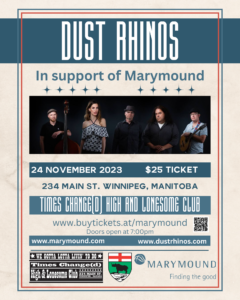“My name is Hayley and I am senior youth care practitioner at Bagosenim. I’ve been here for two-and-a-half years.
The idea for Bagosenim is for assessment and planning for youth who are new to care but it doesn’t always happen that way. Sometimes we get youth who have been in care for a while, but they are missing a lot of assessments so they stay for four months and during the four month period our clinician does assessments with them. We’re all gender inclusive, so boys, girls, non-binary, transgender, we accept all, and we take youth from ages 12-17.
We work with them on daily routines because a lot of the children that we get here have been in kind of a state of chaos for a long time. A lot of the basic things like doing laundry or making your bed in the morning are skills that they don’t necessarily have, so as youth care practitioners we are helping them build up their daily routines.
And then with the clinician, they do the assessment part, and usually they’ll meet with them once or twice a week. Sometimes they’ll have more casual conversations rather than like sitting down with the iPads or with a pen and paper. The clinician is doing mental health assessments, cognitive assessments, things that will help with future education and future placements, just to get an idea of where youth are at, especially when it comes to cognitive age versus their chronological age. A lot of times those things don’t match up and that’s usually due to trauma.
We work with a very trauma-informed lens and use strengths-based methods to work with the youth. Trauma-informed would mean having the knowledge that people who have been through a lot of trauma are going to react to things differently than someone who hasn’t been through trauma. An example would be some youth are so used to houses where maybe their caregivers are very angry a lot of the time, so in the times that they have been around adults who smile a lot and are very happy, they get kind of cautious around that because perhaps in the past, when their caregivers were in a good mood, something bad happens. Trauma has changed the way that they react to things and trauma-informed means having that knowledge and keeping in that in mind.
We really want to focus on the strengths that youth are showing, making sure that we are acknowledging those things to them because they might not notice those things themselves. I think it’s a tendency for people to focus more on the things that aren’t going right.
As a youth care practitioner, a lot of the days are similar to parenting. I mean I’m not a parent, but it kind of looks like what a healthy parent-child relationship should look like. So, we do the basics like cooking and cleaning, making sure that the youth are getting the support they need for going to school or getting to appointments. A lot of basic needs types of things. And then there’s also the activities, so that’s really fun. We’re going to the ex next week, we’ve got horseback riding, water parks and beaches, we have a cottage weekend for four days in July.
Another big part would be just being present with the youth. You know, emotions can be all over the place and just being present and listening. Listening, I’d say is more important than even talking because a lot of times they just want to vent and they just want to know someone is there.
I really love my job. I really love the atmosphere. Everyone I’ve met at Marymound is really welcoming, really friendly and also just seems really sure of themselves. I absolutely love my supervisor Jamie, and our clinician Phil. They are so smart, they’re incredible people to work with. I have really good people to look up to, good role models and good supports.
I love the little moments of creating and building relationships. It’s really cool to see a kid who was really scared at the beginning sitting around the dining table with us, you know, sharing a meal and laughing and being goofy. It’s really great to see kids become more comfortable.”

 Conferences & Training Centre
Conferences & Training Centre